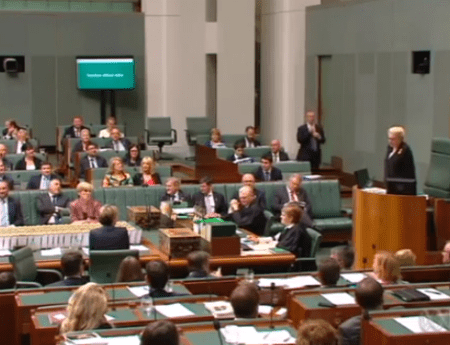Yesterday was a good day for Australian women in politics. In Canberra Question Time was presided over by four females for the first time in history. Bronwyn Bishop, Julie Bishop, Tanya Plibersek and deputy clerk of the parliament Claressa Surtees were in charge as Bill Shorten and Tony Abbott were both in Macksville for Phillip Hughes’ funeral.
The Speaker Bronwyn Bishop remarked upon the moment saying “we might have made a little bit of history”. Indeed.
Later in the afternoon Victoria’s new Premier Daniel Andrews unveiled his Cabinet which features nine women and 13 men. It’s not quite parity, but it’s considerably closer to that balance than federal Cabinet is.
Brunswick MP Jane Garret and Western Victoria MP Jaala Pulford are among the women promoted by Andrews. Garrett told Fairfax Media she was “delighted and honoured” with her elevation. “I’m really looking forward to being sworn in. It’s a huge privilege,” she said.
Andrews has not yet revealed the portfolios that his new ministers will hold.
The issue of women in politics is both substantive and symbolic. Having representatives that actually reflect the population whom politicians serve is one way, albeit imperfectly, of ensuring the interests of everyone in the community are represented. It doesn’t always work but it’s far more likely to happen when those in power come from a variety of backgrounds.
Aside from that, however, having more women in power is vital in terms of the message it sends. The symbolic message from yesterday’s Question Time is powerful because of that; it paints a picture for another generation of men and women about what is possible. The message is that men and women are capable of doing certain jobs and holding certain roles. And that is worth celebrating and recognising because that is the way we will dismantle the stereotypes and expectations that tell us otherwise.
To top off a good day for Australian women last night on ABC’s 7.30 the opposition leader Bill Shorten told Leigh Sales what many of us have been arguing ad nauseam regarding economic growth. ” It’s about the equal treatment of women. This government doesn’t get it, but if you treat women equally in our society, you will get a productivity surge.”


